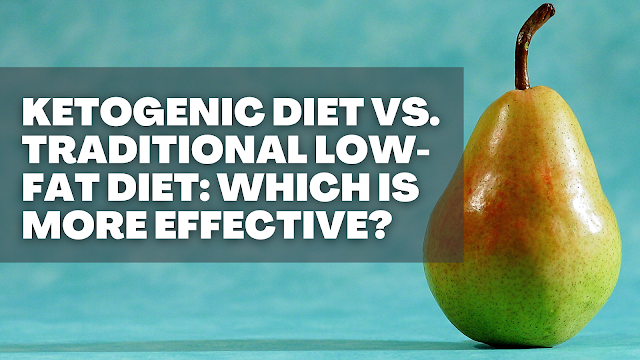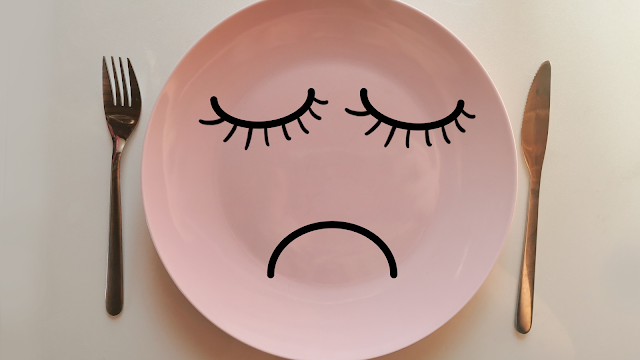Alright, buckle up, folks. We're diving into the epic showdown of diets: "Ketogenic Diet vs. Traditional Low-Fat Diet - Which is More Effective?"
In this corner, we've got the old-school champ, the low-fat diet. It's been around the block a few times, and you've probably seen it plastered all over those cereal boxes and yogurt containers in the grocery store. But is it really the heavyweight contender it claims to be?
And in the opposite corner, we have the newcomer, the Keto Diet, the social media sensation that's been taking the dieting world by storm. But is it just another flashy fad, or does it have the muscle to go the distance?
Let's get ready to rumble as we break down these two contenders, comparing their strengths, weaknesses, and real-world results to see which one reigns supreme in the battle of the bulge. Grab your popcorn and let's dig in! 💪🥊🍿
"Ready to kickstart your Keto journey and achieve your weight loss goals? Discover our personalized Keto diet plans and top-quality weight loss supplements at Keto Lifestyle Hub. Take the first step towards a healthier, happier you today!"
II. Understanding the Ketogenic Diet
The Ketogenic Diet, often referred to as "Keto," has gained immense popularity in recent years, and for good reason. At its core, Keto is a high-fat, low-carbohydrate diet designed to shift your body's metabolism into a state called ketosis. In ketosis, your body becomes exceptionally efficient at burning fat for fuel, leading to weight loss. The principle is simple but profound: by drastically reducing your carb intake and increasing your fat consumption, you force your body to switch from using carbohydrates as its primary energy source to using stored fat.
III. Exploring the Traditional Low-Fat Diet
On the other side of the dietary spectrum, we find the Traditional Low-Fat Diet. For decades, this approach has been a go-to recommendation for weight loss. It emphasizes reducing the consumption of dietary fats, especially saturated and trans fats, and focusing on foods that are low in fat. The belief behind this approach is that by lowering fat intake, you'll naturally consume fewer calories and ultimately shed excess weight. This diet has been championed by various health organizations and governments as a way to improve heart health and reduce the risk of chronic diseases.
 |
IV. Is Keto More Effective than a Normal Diet?
Now, let's address one of the burning questions: Is the Ketogenic Diet more effective than a "normal" diet? To answer this, we need to understand what a "normal" diet entails. Generally, a normal diet consists of a balanced intake of carbohydrates, proteins, and fats, with carbohydrates forming a significant portion of daily calorie intake. However, the effectiveness of such a diet for weight loss can vary widely among individuals.
Numerous studies have compared Keto to standard diets. They have found that, in the short term, Keto often leads to more rapid initial weight loss. This is because the body rapidly depletes its glycogen stores and sheds water weight as it enters ketosis. However, the long-term effectiveness of Keto versus a normal diet can be influenced by various factors, including individual preferences, compliance, and health goals.
V. Are Low-Fat Diets Better?
Low-fat diets have long been considered a gold standard for weight loss and overall health. The idea behind them is simple: by reducing fat intake, you cut down on calorie consumption and promote weight loss. Moreover, low-fat diets have been promoted as heart-healthy, with the belief that reducing dietary fat can lower the risk of heart disease.
However, the effectiveness of low-fat diets has come under scrutiny in recent years. Some studies have suggested that they may not be as effective for weight loss as previously thought. Additionally, not all fats are created equal, and the type of fats in one's diet plays a significant role in overall health. These factors have led to a reevaluation of the low-fat diet's place in the realm of weight management.
In the next sections, we'll delve deeper into the science behind these diets and examine their real-world impact on weight loss and overall health.
VI. Finding the Best Dietary Approach to Losing Weight
With the Ketogenic Diet and Traditional Low-Fat Diet in the spotlight, it's essential to acknowledge that there's no one-size-fits-all solution when it comes to weight loss. The "best" dietary approach varies from person to person. Your ideal diet should align with your goals, preferences, and unique physiology. While Keto and low-fat diets are two prominent options, other diets, such as Mediterranean, Paleo, and intermittent fasting, offer viable paths to weight loss.
VII. Is Keto More Effective for Fat Loss?
One of the primary reasons individuals turn to the Ketogenic Diet is its reputation for fat loss. But does it live up to the hype? The science suggests that Keto can indeed be highly effective for fat loss, particularly in the initial stages. Ketosis encourages your body to tap into its fat stores for energy, leading to a noticeable reduction in body fat percentage. However, it's crucial to consider long-term sustainability and whether Keto aligns with your lifestyle.
VIII. Is Keto Successful for Everyone?
While the Ketogenic Diet has garnered a devoted following, it's not a one-size-fits-all solution. Success on Keto can vary depending on several factors, including individual metabolism, insulin sensitivity, and personal preferences. It's important to consult with a healthcare professional before embarking on Keto, especially if you have underlying health conditions. Additionally, some people may find it challenging to maintain a strict Keto regimen over the long term.
IX. What is the Most Successful Way to Diet?
The path to successful and sustainable weight loss involves more than just choosing a specific diet. It encompasses a holistic approach that considers not only what you eat but also how you eat, your physical activity, sleep, and stress management. The most successful way to diet is one that aligns with your lifestyle, is sustainable over time, and prioritizes balanced nutrition.
X. Which Diet Causes the Fastest Weight Loss?
When it comes to rapid initial weight loss, the Ketogenic Diet often takes the lead. The reduction in carbohydrate intake, coupled with the metabolic shift into ketosis, can result in shedding several pounds in the first week or two. However, it's crucial to understand that this initial weight loss largely comprises water weight, and the rate of weight loss tends to slow down as your body adjusts to the diet.
Certainly, let's continue with sections 11 to 14 of the blog post:
XI. Speeding Up Weight Loss Results
For those eager to see faster results on their weight loss journey, there are several strategies to consider. These include increasing physical activity, practicing mindful eating, tracking your progress, and staying consistent with your chosen diet. Additionally, incorporating intermittent fasting or time-restricted eating can help accelerate fat loss by extending the period of ketosis.
XII. Maximum Weight Loss in a Week and Safety
While rapid weight loss can be motivating, it's essential to understand the safe limits. Aiming for a maximum of 0.5 to 1 kilogram (1 to 2 pounds) of weight loss per week is generally considered safe and sustainable. Extreme diets or rapid weight loss approaches can lead to nutrient deficiencies, muscle loss, and other health issues. It's crucial to prioritize your health throughout your weight loss journey.
XIII. Conclusion
In the ongoing debate of Keto vs. Traditional Low-Fat Diet, there's no one-size-fits-all answer. Both diets have their merits and potential drawbacks. The key takeaway is that the most effective dietary approach is one that aligns with your goals, preferences, and individual needs. Successful weight loss is not just about the diet you choose but also about maintaining a healthy and sustainable lifestyle in the long run.
Remember that consulting with a healthcare professional or registered dietitian is a wise step. They can provide personalized guidance tailored to your specific circumstances and help you make informed decisions about your dietary choices.
In our next blog post, we'll dive deeper into specific aspects of the Ketogenic Diet and the Traditional Low-Fat Diet, providing you with a more detailed understanding of how each diet works and their potential benefits and limitations. Stay tuned for more valuable insights on your journey to better health and fitness.
Thank you for joining us on this exploration of the age-old question: Which diet is more effective, Keto or Traditional Low-Fat? We hope you found this overview insightful and helpful in your quest for a healthier, happier you.





















0 Comments